- Home
- Michael Wallace
The Warrior King (Book 4) Page 15
The Warrior King (Book 4) Read online
Page 15
“I prefer the warmth of your gardens,” he said, “but the real world is intruding into this lovely place.”
“Why have you come?” Memnet asked, looking at Markal with a smile on his lips.
Again, the youth shone on his face. Markal thought of his own adolescence, so many centuries distant that he could no longer remember what his own reflection had looked like. He now carried the ageless appearance of a wizard, appearing to be somewhere between forty and his late sixties depending on the viewer. But even if his true age were disguised, he always felt the burden of the years deep in his bones. He had become an old man.
“I need your help defeating the ravagers.”
“I am trapped in this sheol, my friend. What can I do?”
“It’s not what you can do, it is what you know. When you died, I was an apprentice, my knowledge and training incomplete. After the war, there were no others who could train me, and fire salamanders had burned the great libraries. I collected every scroll, book, and scrap of parchment I could find, and over the generations I rebuilt what knowledge I could.
“Other orders did the same. In the khalifates, the conjurers and torturers guilds rebuilt the dark magics. In the south, the mages shared much of my own order’s wizardry, although they gain their power through the tattoos with which they adorn their bodies. The cloud kingdoms have their own order. Do you remember Kreth?”
“I do. An impatient, anxious boy.”
“An idiot, you mean. He’s not much better now. In the summer, I found one of the oracular tomes in the tombs outside Balsalom. The Tome of Prophesy. Kreth took it by force.”
“That must have been a bitter loss,” Memnet said.
“It wouldn’t have been if the cloud kingdoms would help us against the dark wizard. I would gladly share the tome’s knowledge. But they remain aloof, even hostile.”
Memnet rose and walked back and forth across the cobblestones. A frown of concentration burrowed into his features.
“You know something about these ravagers you haven’t told me, don’t you?” Markal asked. “How does the dark wizard control so many dead souls? In the First Tothian Wars, he only mastered a handful, one champion and several mindless followers.”
“How many oracular tomes were written at the foundation of the world?” Memnet asked.
“Five. Why do you ask?”
“Name them.”
Markal frowned, unsure why this mattered. “The Tome of Creation, the Heart Tome, the Shadow Tome, the Tome of Prophesy, and one whose name has been lost. Creation brought forth the world, Heart gave us the mind and morality of man and beast, and Shadow the magic that we call forth. Prophesy shapes and directs the future.” He shook his head. “I don’t know the nature of the forgotten tome.”
“The forgotten volume was the Tome of Life,” Memnet said. “The Sky Brother wrote the Tome of Creation, which divided the dry land from the sea and lifted the moon into the heavens, but the Forest Brother took this creation and breathed life into it, giving rise to the beast of the field and the birds of the air. Every fish and creeping thing upon the surface of the land.”
Markal stared. This was fascinating, and nothing he remembered hearing before.
“The Book of Creation was the first to be destroyed,” Memnet continued. “It is said that a great dragon swallowed it. The Forest Brother had put some of his own life essence into the book and was left weakened by its destruction. That is how he was later killed—he had become mortal. Other tomes have been lost or destroyed as well, and in fear the brother gods have fled the land.”
“We have seen the Mountain Brother,” Markal said.
Memnet smiled. “It is he who inscribed the Tome of Prophesy, he who can see and shape the future. This is why he alone of the five brothers is not afraid and still walks among the children of Mithyl.” The wizard’s young face turned serious again. “But there was also a sixth tome.”
“Six? But there are only five brothers.”
“Are there?”
Markal thought for a moment. “The Harvester.”
“The youngest of the brother gods. While the others chose to be gods of life, land, and sea, the Harvester offered to be the harbinger of death, its gatekeeper and master. Without him, the souls of the dead would wander the surface of the world forever, tormenting and driving mad the living. In return, he is ever feared and never worshiped. His book is the Tome of Death. For without death, there can be no rebirth.”
“That is it,” Markal said, understanding now. “King Toth has discovered the final tome. He commands power over death.”
“We are speculating now, my friend. But yours is not a haphazard guess, either.” Memnet sat back down next to his former apprentice. “You can destroy the ravagers with great violence and at a terrible cost to your own forces, but so long as the dark wizard controls the Tome of Death, he will create more dark champions, an entire army of them.”
Suddenly Memnet sprang to his feet and cocked his head, as if listening to a distant voice. “The master of the sword comes. I feel Whelan’s presence.”
This surprised Markal. Why would Whelan return to the hill to claim the sword? Unless there were trouble stirring.
“He is worried,” Memnet added, affirming Markal’s guess. “And my enemy stirs too. Malik the Cruel readies an attack. That can mean only one thing—a battle is brewing in the real world. Quickly now, you must depart. We are both needed elsewhere.”
Markal took out the orb. He knew it was only a representation in his mind of the actual sphere of glass sitting next to him at the standing stones, but it helped him concentrate. He chanted the spell that would carry him out of this place. Memnet’s smooth, low-pitched voice joined his and for an instant Markal was transported to his childhood, when he would gather with the other apprentices after they completed their chores in the garden, and the great wizard would chant with them.
The garden faded. The golden sun blurred in the sky, and a second sun appeared closer to the horizon. His old master looked hazy, indistinct.
“Fare thee well, my friend,” Memnet said.
The wind picked up around Markal and turned from warm to cold. The drone of bees faded, and Markal found himself sitting on the stone slab. The smell of flowers lingered in his senses a moment longer, the last taste of honey on his tongue, then they were gone.
Even as he took hold of his senses, the clash of battle reached his ears. Sword on shield, the whinny of horses, the bellowing of captains organizing their men, trumpets sounding to form ranks. It came from the west, where a river of men and horse flowed into the center of the army camp. The sun was late in the sky—it would seem that he had passed the night, the morning, and most of the day within Whelan’s sword. The ache of his bones and the stiffness of his muscles spoke at how long he had remained sitting on the slab.
A man came running up the hillside, panting. It was the king.
“Quickly!” Whelan said. “I must have Soultrup. The enemy attacks.”
Chapter Nineteen
With Sofiana furiously ignoring him, and the Kratians silent except when they needed to exchange information, Darik enjoyed the peaceful trek through the desert. There was no small talk or gossip, only the grunts and gentle swaying motion of the camels as they climbed one dune after another. Sofiana rode ahead of Darik, visibly bristling whenever she glanced back, but otherwise refusing to engage with him. Perfect.
But around midmorning, her resolve seemed to crumble, and she turned in the saddle. “I was making it perfectly well on my own.”
“I’m sure you were.”
“So why didn’t you leave me be? Go look for your bird girl or something? Or maybe she doesn’t need you, either.”
He had resolved to let her insults brush past him, but that last remark stung like the sandstorm that had whipped up in the night and sent both riders and camels huddling together for protection. Still, he refused to let her lure him into a battle.
“Markal and Narud told me to stay with
you, so I will.”
“I traveled plenty far without you, and I would have made it all the way to Balsalom too. Why didn’t you leave me alone?”
Darik brought his camel up next to hers and drew the straight-edged sword he’d been carrying since he took it from the abandoned griffin tower a few weeks earlier. “See this?” he said, pointing to an unsightly notch in the blade. “One of those big Marrabatti scimitars hit it.”
“You got in a fight?”
“Twice. Both times it was the sultan’s men, out looking for you.”
She looked momentarily interested, then seemed to remember her anger, scowled, and looked away. “It’s not my fault if you couldn’t keep yourself hidden.”
Abudallah was riding ahead of them and now turned and grinned through khat-stained teeth. “Is this girl your sister, my friend? You never told me that part.”
Darik snorted. “No. She’s my friend’s daughter, and no relation of mine.”
“Many pardons. I thought Ninny looked like you, but Eriscobans all look alike to me. But her tongue!” He nodded. “I have a younger sister. She sounds much the same when she loses her temper.”
“I’m not his sister!” Sofiana said. “Anyway, you stay out of this.”
“Younger sisters are like flies,” the Kratian said. “They are pests, but mostly harmless.” He flashed Darik a grin, then turned back around in the saddle with a chuckle.
Darik had already traveled with the nomads for two days and had discovered them to be equal parts traders, brigands, and benevolent hosts. That first day after he’d paid his coin and explained his situation, Abudallah led them into an oasis town centered around a natural spring and enclosed with ten-foot-high mud walls. Date and palm trees rose outside the walls, and a boy tending goats watched them silently and grinned when Abudallah tossed him a Balsalomian six-crana coin. The sheik of the town and a dozen of his men met the Kratians with drawn swords, but after a short haggle, the Kratians renewed their supplies and left a bit of silver in return.
After they continued north, Darik did not expect to see the town again. But as soon as they fell out of sight of the town walls, Abudallah ordered the men to circle around and approach the oasis a second time, this time from the west.
“Did you see where they left their camels?” Abudallah explained when Darik asked what business they had returning to the town. “In a poorly watched enclosure outside the walls. Very foolish. What tribe leaves its camels out if it doesn’t want them stolen?”
Except the town wasn’t exactly a tribe, was it? No, it was an established trade city on the Spice Road and protected by Mufashe’s decree. Darik had labored under the delusion that Abudallah wanted to avoid Marrabatti attention. He pointed this out.
Abudallah dismissed these concerns with a wave of the hand and gave his orders to the others in Kratian. One of the riders rode openly toward the town gates, a jug of fermented camel milk in his hand, and swaying visibly in the saddle. When he drew within two hundred feet, he began to sing at the top of his voice. His camel bellowed too, either trained for this business or jabbed in the haunches.
Meanwhile, Abudallah and the other men rode around back toward the camel enclosure. The town’s camels carried on their own racket, but Darik could see two men on the town walls, and they were watching the drunk man ride toward the gates, paying their own animals no attention. With the guards diverted, the Kratians roped up the camels and led them from the enclosure. The man feigning drunkenness turned to ride away, suddenly straight and sober in the saddle. Someone raised a shout, but by now, all the camels loped across the desert with the Kratians, who quickly put distance between themselves and the victims of the theft. Darik watched for pursuit, but saw none, not right away at least.
“You see how easy that was,” Abudallah told Darik when at last they slowed down. “The sheik did not truly want those camels. If he did, he would have watched them better. No, this was a gift.” He took up the jug of fermented milk and gargled it before swallowing, a sign Darik had already learned meant that he was quite pleased. “Everything in the desert is a gift—it belongs to you only so long as you can guard it.”
That wasn’t exactly what Darik thought of as a gift. “Then why go to Balsalom to trade? Why not just take what you need from the khalifates?”
Abudallah looked horrified. “What do you take us for, thieves? Pah!”
Darik guarded his words after that. Do not question the man’s honor or his hospitality, he later decided. Keep that rule and one could say anything to Abudallah without causing insult.
Now, riding with Sofiana, Darik saw with some amusement that the girl was about to learn the same lesson. She was still bristling from the taunt about the man’s annoying younger sister.
“I don’t need you or any of you. Bunch of smelly camel riders.”
Abudallah turned once more in his saddle, his eyes and grin widening together. “This fly can bite!”
“I’ll show you a bite, you thieving, plundering—”
Now the Kratian’s expression darkened. He spat to the ground. “Uncharitable girl, do you forget how we saved you from the desert? You could barely walk from hunger. And your waterskin? Filled with sand, it was. You would not have lived to see another sunset. And you call me a thief?”
“You didn’t save me! I managed perfectly well on my own and could have crossed this desert on my hands and knees, if necessary. Without any of you!”
The other Kratians laughed, and after glaring at them for a moment, Abudallah began to laugh as well. He laughed until tears ran down his cheeks, and he wiped them with his beard.
“Yes, yes, you are right,” he said when he managed to catch his breath. “You are our guide, and we are your humble followers.” His voice turned stern. “But you must never accuse me of thievery again.” With that, Abudallah turned back around and dug his heels into his camel to urge it forward.
When he was out of earshot, Sofiana turned to Darik. “I don’t understand these men. Is he insulted or not?”
“Yes, and no. Don’t question his honor or his hospitality. Nothing else bothers him.”
The girl cast a look at Darik’s sword, now returned to its sheath of tooled leather inscribed with the shape of oak leaves. Curiosity was evident on her face, and he knew he wouldn’t have long to wait.
“How did the guards find you, anyway?”
“I made sure to announce my presence,” he said. “After you ran away that night, I stayed on your trail for a bit. The transformation left an aftertaste of magic. Once you know it’s there, you can follow. It faded after a few hours—maybe Markal could have followed longer—but I knew you’d gone into the desert instead of simply traveling up the Spice Road.”
“You didn’t think I’d be so stupid to stay on the road, did you?”
“No, but I also knew that Mufashe’s men would figure that out soon enough and go into the desert to look for you. They might have dogs or falcons, or the tattooed mages might use magic to hunt you down. So I returned to the village, bought a horse, and told the man I was traveling with my younger sister—”
“Again with the sister!”
“—and spread the same word up the highway as I traveled from caravanserai to caravanserai. I was careful for ambushes, but I didn’t get away unscathed.”
One of the battles had very nearly cost him his life. He’d rented a room at one of the inns, then crept out to get his horse and ride out of town again, knowing that he was in too much danger to simply sleep the night away in a real bed. Renting the room was meant to establish a trail for the sultan’s men to follow, nothing else.
But as he came up to the Spice Road at dusk, he came upon three men with turbans and robes who had been riding north on swift desert ponies. They ordered him to stop and drew scimitars when he did not. Darik’s horse had already spent hours on the road and couldn’t outpace the three enemies. So he brought the animal around and charged them.
He killed one man, traded blows with another, on
e of which very nearly unhorsed Darik, before the riders fled. At that point, he figured he’d be safer off the road himself. That was when he met Abudallah and the Kratian nomads, where he heard the story of the missing camel. He encouraged the man to ride hard to get ahead of the girl, then they all settled down to wait. A few gentle spells encouraged the firelight to spread farther than usual across the desert, made the cooking meat smell more enticing, and helped lure Sofiana into camp, as Darik had hoped.
“So you did help me,” she said when he was finished. She cast one more suspicious glance. “Assuming you’re telling the truth.”
“It doesn’t matter if you believe me or not. I intend to escort you all the way to Balsalom. And I’m afraid you now carry a tracking spell that I cast on you while you were asleep. I’ll find you wherever you go.”
This was entirely untrue. He didn’t have that particular spell in his limited collection, and neither would it be a simple thing to call forth if he had. But he could tell by Sofiana’s sour expression that she believed him.
#
They crossed over an old road late that afternoon. Apparently pressed into the hard ground by tens of thousands of camels over the centuries, the road had no fresh markings and disappeared into a dune that had drifted across its path. Darik asked Abudallah where the road led.
“Wabur,” Abudallah said in a solemn voice. “Once the greatest city of the desert. Gold and pearls lined its streets, and every window was built of giant cut rubies. The sultan’s treasury filled a thousand-thousand rooms with gold and silver and precious gemstones.”
Darik raised an eyebrow. The Kratian chieftain sometimes gave himself to fanciful statements, and this was obviously one of them, but the road was so wide that he had no doubt that some great city had once sat at its end.
Curiosity lit up Sofiana’s face. “What happened to Wabur?”
Abudallah gave a sad shake of his head. “They grew proud and proclaimed to all the world they had created themselves from the dust of the land. They tore down the temples of the brother gods. One day, hundreds of years ago, the Sky Brother and the Mountain Brother took offense at their arrogance and rained fire and brimstone upon the city.”

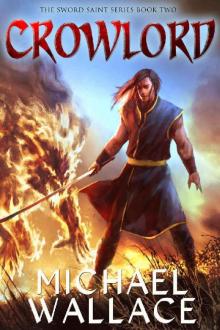 Crowlord (The Sword Saint Series Book 2)
Crowlord (The Sword Saint Series Book 2) Crowlord
Crowlord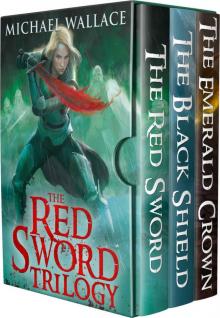 The Red Sword- The Complete Trilogy
The Red Sword- The Complete Trilogy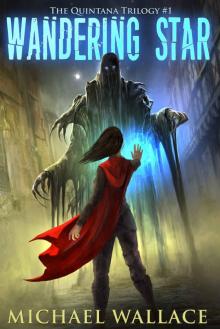 Wandering Star (The Quintana Trilogy Book 1)
Wandering Star (The Quintana Trilogy Book 1)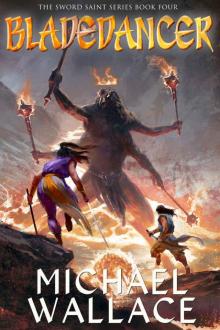 Bladedancer
Bladedancer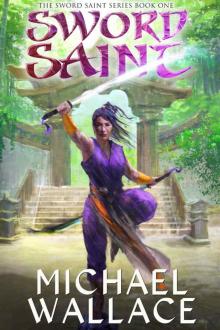 Sword Saint
Sword Saint The Alliance Trilogy
The Alliance Trilogy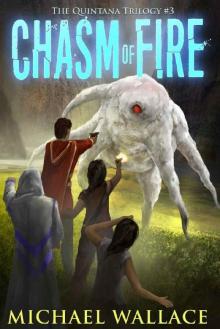 Chasm of Fire
Chasm of Fire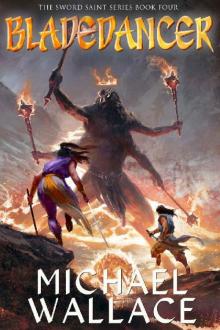 Bladedancer (The Sword Saint Series Book 4)
Bladedancer (The Sword Saint Series Book 4) The Devil's Deep
The Devil's Deep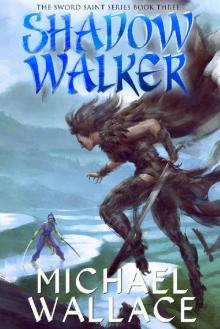 Shadow Walker (The Sword Saint Series Book 3)
Shadow Walker (The Sword Saint Series Book 3) Starship Blackbeard
Starship Blackbeard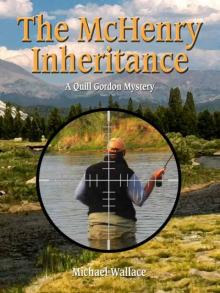 The McHenry Inheritance (Quill Gordon Mystery Book 1)
The McHenry Inheritance (Quill Gordon Mystery Book 1) Sun King (The Void Queen Trilogy Book 3)
Sun King (The Void Queen Trilogy Book 3)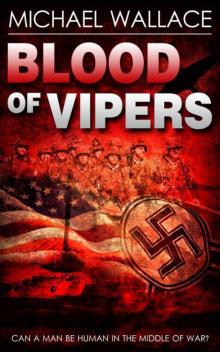 Blood of Vipers
Blood of Vipers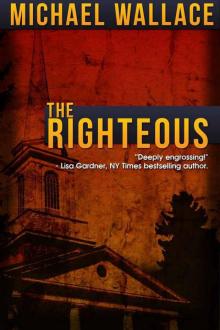 Righteous - 01 - The Righteous
Righteous - 01 - The Righteous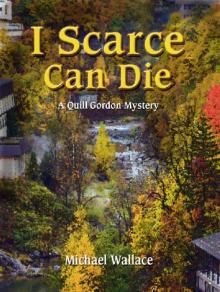 I Scarce Can Die (Quill Gordon Mystery Book 5)
I Scarce Can Die (Quill Gordon Mystery Book 5)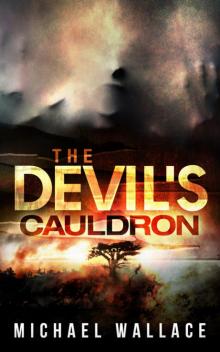 The Devil's Cauldron
The Devil's Cauldron The Wicked (The Righteous)
The Wicked (The Righteous)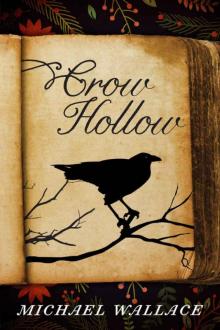 Crow Hollow
Crow Hollow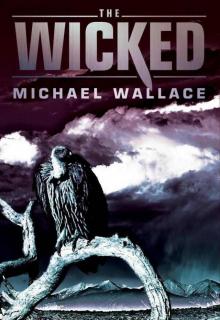 Righteous03 - The Wicked
Righteous03 - The Wicked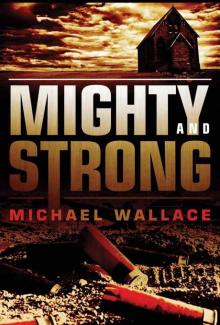 Righteous02 - Mighty and Strong
Righteous02 - Mighty and Strong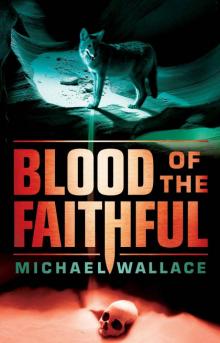 Blood of the Faithful
Blood of the Faithful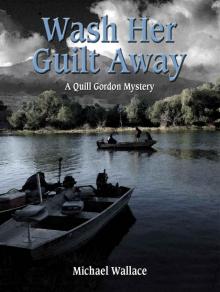 Wash Her Guilt Away (Quill Gordon Mystery Book 2)
Wash Her Guilt Away (Quill Gordon Mystery Book 2)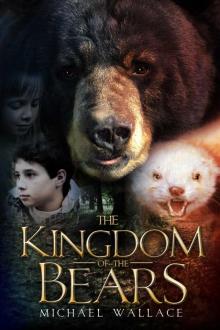 The Kingdom of the Bears
The Kingdom of the Bears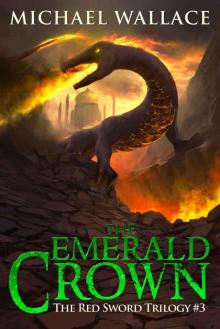 The Emerald Crown (The Red Sword Trilogy Book 3)
The Emerald Crown (The Red Sword Trilogy Book 3)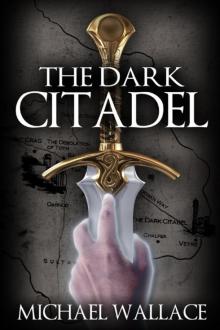 The Dark Citadel
The Dark Citadel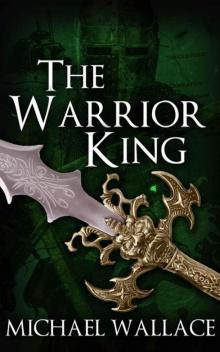 The Warrior King (Book 4)
The Warrior King (Book 4)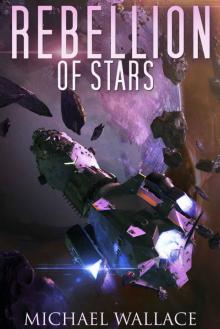 Rebellion of Stars (Starship Blackbeard Book 4)
Rebellion of Stars (Starship Blackbeard Book 4)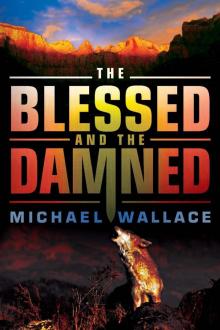 Righteous04 - The Blessed and the Damned
Righteous04 - The Blessed and the Damned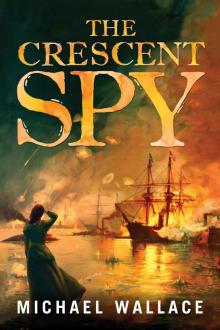 The Crescent Spy
The Crescent Spy Queen of the Void (The Void Queen Trilogy Book 1)
Queen of the Void (The Void Queen Trilogy Book 1)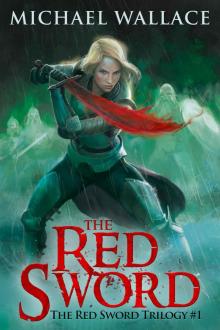 The Red Sword (The Red Sword Trilogy Book 1)
The Red Sword (The Red Sword Trilogy Book 1) The Sentinel (The Sentinel Trilogy Book 1)
The Sentinel (The Sentinel Trilogy Book 1)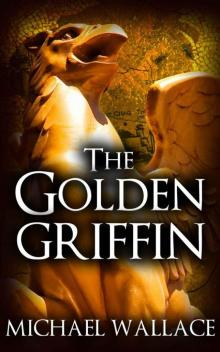 The Golden Griffin (Book 3)
The Golden Griffin (Book 3)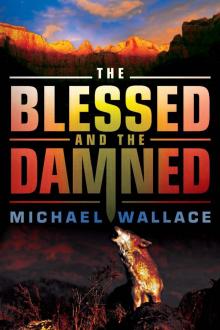 The Blessed and the Damned (Righteous Series #4)
The Blessed and the Damned (Righteous Series #4)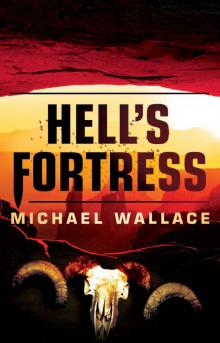 Hell's Fortress
Hell's Fortress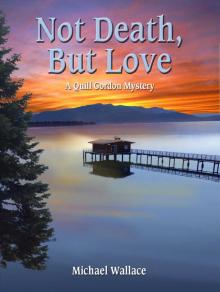 Not Death, But Love (Quill Gordon Mystery Book 3)
Not Death, But Love (Quill Gordon Mystery Book 3) Destroying Angel
Destroying Angel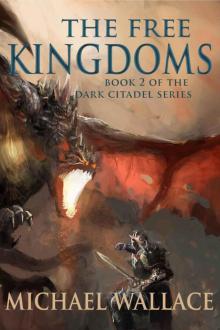 The Free Kingdoms (Book 2)
The Free Kingdoms (Book 2)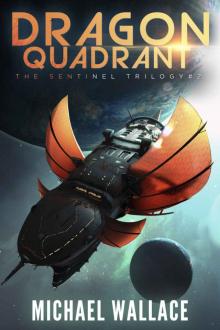 Dragon Quadrant (The Sentinel Trilogy Book 2)
Dragon Quadrant (The Sentinel Trilogy Book 2)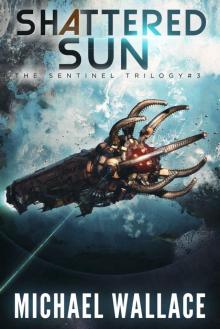 Shattered Sun (The Sentinel Trilogy Book 3)
Shattered Sun (The Sentinel Trilogy Book 3)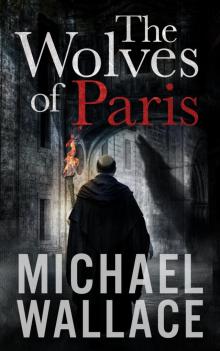 The Wolves of Paris
The Wolves of Paris Lords of Space (Starship Blackbeard Book 2)
Lords of Space (Starship Blackbeard Book 2)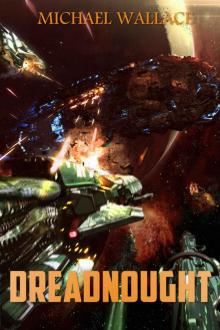 Dreadnought (Starship Blackbeard Book 3)
Dreadnought (Starship Blackbeard Book 3)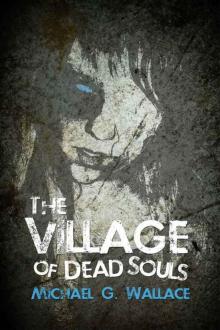 The Village of Dead Souls: A Zombie Novel
The Village of Dead Souls: A Zombie Novel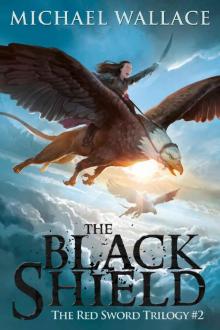 The Black Shield (The Red Sword Book 2)
The Black Shield (The Red Sword Book 2)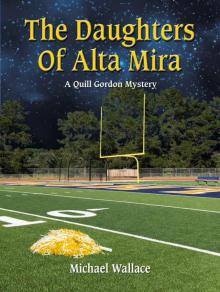 The Daughters Of Alta Mira (Quill Gordon Mystery Book 4)
The Daughters Of Alta Mira (Quill Gordon Mystery Book 4) Mighty and Strong (The Righteous)
Mighty and Strong (The Righteous)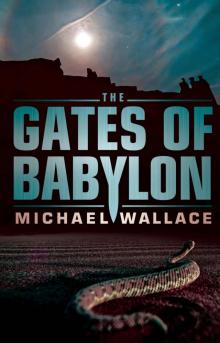 The Gates of Babylon
The Gates of Babylon